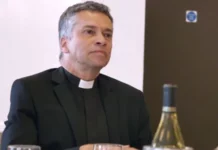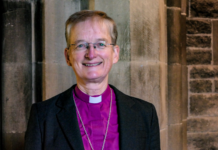INEQE Safeguarding Group has been appointed by the Archbishops’ Council to carry out the next round of independent external audits of Church of England dioceses and cathedrals, starting in January 2024. They were appointed after a full and open tender process, which included survivor representation.
Independent safeguarding audits were first commissioned in 2015 with a pilot scheme which was then rolled out across the Church. The Independent Inquiry into Child Sexual Abuse, IICSA, commended these audits and one of IICSA’s 2020 recommendations (No 8) was that independent external auditing of the Church’s safeguarding policies and procedures, as well as the effectiveness of safeguarding practice in dioceses, cathedrals and other Church organisations, should continue. As with the original audits, all reports will be published along with a follow up action plan and both Bishopthorpe and Lambeth Palace will also continue to be part of the audit process.
As one of the largest organisations of its type in the UK and Ireland, INEQE Safeguarding Group delivers a wide range of contemporary, credible, and relevant safeguarding services. INEQE have developed a strong reputation for conducting high quality and complex safeguarding reviews and audits with the primary aim of helping organisations reflect, learn, and improve, so they are better able to address the specific safeguarding risks they face.
The audits will be carried out in the diocese and cathedral at the same time (previously this was done separately), with an audit framework agreement to ensure consistency of approach. As part of their audits, INEQE will speak with children and vulnerable adults in each diocese (including victims and survivors of abuse).
While the audits are not intended to assess the adequacy of or approach to safeguarding in parishes specifically there will be a focus on diocesan and parish interaction and some capturing of the quality of safeguarding practice in a small sample of parishes. The audits will be informed by the Church’s new National Safeguarding Standards, approved by the National Safeguarding Steering Group in July 2023, and to be launched in September. The auditors will be mindful that those dioceses and cathedrals in the early audit phase will have had less time to embed these Standards. Auditors will also look at progress against relevant PCR2 and previous independent audit recommendations. The audits are expected to take place over a four-year period with dates to be agreed with dioceses and cathedrals during the autumn.
The Bishop of Stepney, Joanne Grenfell, the Church’s lead safeguarding bishop said: “These audits are just one part of our ongoing commitment to making the Church a safer place for all, ensuring that all dioceses and cathedrals have the best possible practice in place. It is important we are open to external scrutiny in our safeguarding work and as with the previous audits by SCIE, there will be lessons to learn for all of us. The audits will show how each diocese and cathedral can improve, while also commending good practice that is already in place.
“Good safeguarding practice enables the Church to ensure that the vast range of its work which goes on every day of the year is done to the very highest standards for everyone who wants to be involved. These audits are a key part of this work.”
INEQE’s Director of Operations Hannah Paul said:
“We look forward to working with the entire church community as we deliver independent audits to support the Church of England’s safeguarding improvement journey.”
Finding support
The independent and free Safe Spaces helpline, for victims of Church-related abuse can be accessed on 0300 303 1056 or visit www.safespacesenglandandwales.org.uk
Alternatively, you may wish to contact the diocesan safeguarding team in your area or the National Safeguarding Team – email safeguarding@churchofengland.org
There are also other support services available.
NOTES
The original audits were carried out by SCIE




[…] Source […]
[…] Source […]